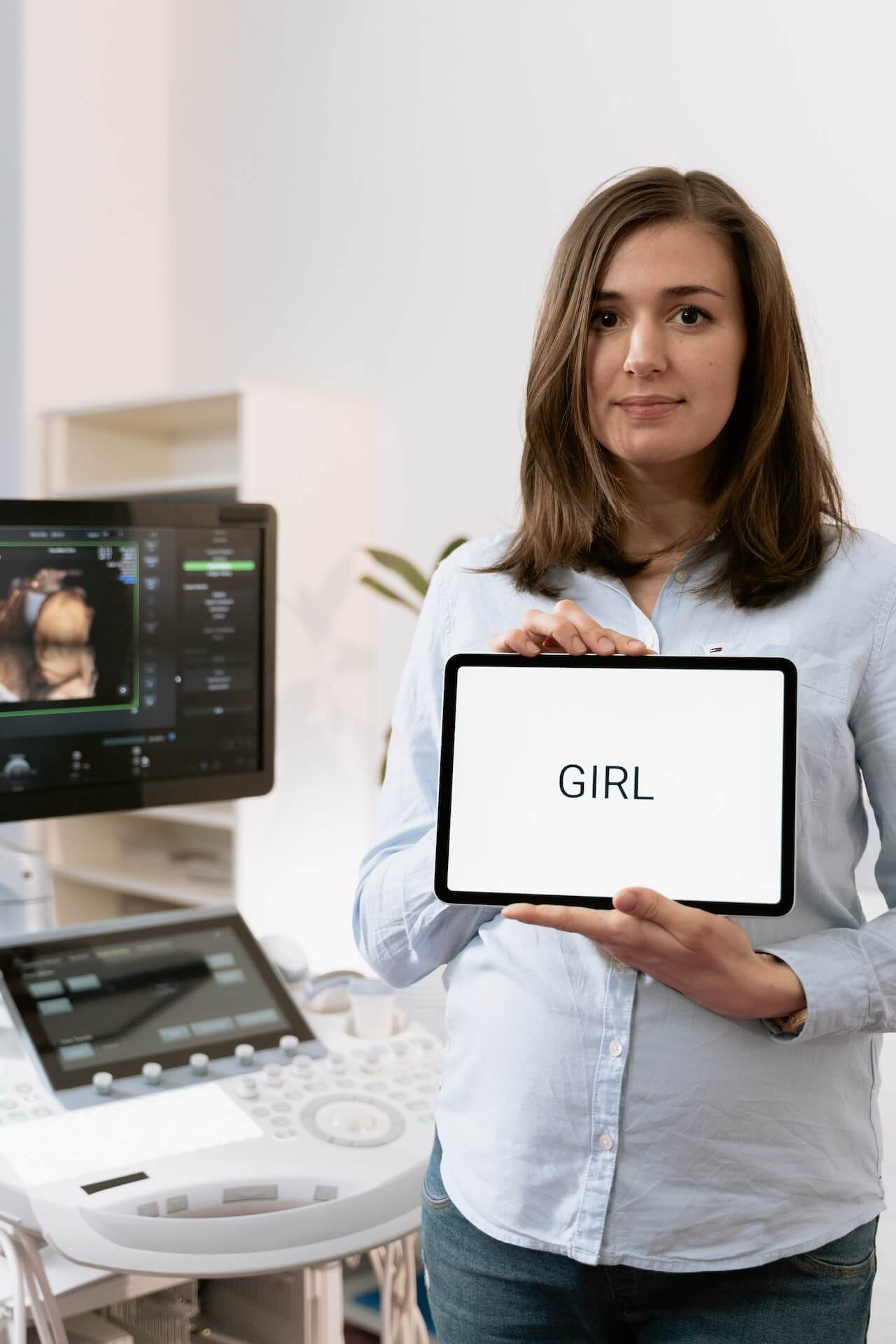The second trimester is the middle stage of your pregnancy, lasting from weeks 13 to 26. This is also a period of rapid growth and development of your baby, so you will be busy with health checks and birth preparations. These checkups aid in the monitoring of your baby's development and health, as well as your own. You'll most likely have an exciting 20-week ultrasound during the second trimester (actually, it's usually between 18 and 22 weeks). This scan will give you a good look at your developing baby, including its adorable little fingers and toes! You'll almost certainly have blood work, urine tests, and a glucose tolerance test (which may not be the most enjoyable). These tests may differ from country to country. You must aware what are the tests that health care provider performs on you and what is the importance of these tests. Here are some brief details about common pregnancy tests that are carried out by most obstetricians and gynecologists during the second trimester.
01.Ultrasound

During pregnancy, ultrasound has become an essential tool for evaluating your baby. They're completely safe for you and your baby, and they're usually a much-anticipated opportunity to see your precious baby. An ultrasound in the second trimester can check the pregnancy stage, fetal anatomy, the placenta, and the amniotic fluid. While a second-trimester ultrasound can provide a lot of information, it is also having some limitations. Some anatomical problems are more obvious than others, and some cannot be detected before birth.
02. Anomaly Scan

An anomaly scan takes a close look at your baby and your womb (uterus) at about 20 weeks of pregnancy. The anomaly scan is done between 20 and 24 weeks of pregnancy. During the scan, the healthcare provider will examine each part of the fetal body, determine the position of the placenta, measure fetal growth, and assess the amount of amniotic fluid. The brain, face, spine, heart, stomach, bowel, kidneys, and limbs receive special attention. The main goal of the anomaly scan is to thoroughly assess the pregnancy and determine the presence of any rare conditions, such as those of the brain, spine, and heart. You can also ask for the gender of the baby during this scan. If any abnormalities are discovered, the significance of the findings will be discussed, and patients will be given the opportunity to speak with a consultant. The anomaly scan is done trans-abdominally (over the tummy). In singleton pregnancies, the anomaly scan usually lasts 45 minutes to an hour. After your appointment, your scan report will be available immediately with a printout and you will be given 2D (black and white) and 3D photos.
03. Multiple Marker Screening

Prenatal screening in the second trimester may include several blood tests known as multiple markers. This test is also called ‘‘The triple screening test’’ or ‘‘AFP Plus’’. During the test, the mother’s blood is tested for three substances. These are:
- AFP, which is a protein produced by your baby
- hCG, which is a hormone that’s produced in the placenta
- estriol, which is a type of estrogen produced by both placenta and the baby.
This test indicates a woman's risk of having a child with certain genetic conditions or birth defects. Between the 15th and 20th weeks of pregnancy, a sample of the mother's blood is usually taken for screening (the 16th to 18th is ideal). Abnormal levels of results may signal:
- Open neural tube defects (ONTD), such as spina bifida
- Down syndrome
- Other chromosomal abnormalities
- Defects in the abdominal wall of the fetus
- Twins. More than one fetus is making the protein
- A miscalculated due date, as the levels vary throughout pregnancy
Abnormal triple-screen test results do not always indicate a problem. Instead, it could indicate the possibility of a complication, in which case additional testing is required. If a triple screen test yields abnormal results in a high-risk pregnancy, your doctor may recommend additional testing.
04. Amniocentesis
Unlike triple-screen tests, amniocentesis can provide a definitive diagnosis. During this procedure, your doctor will take a sample of your amniotic fluid by inserting a needle through your skin and into your amniotic sac. They will examine your amniotic fluid for chromosomal and genetic abnormalities in your baby. Amniocentesis is considered an invasive procedure. It carries a minor risk of miscarriage. Getting one is a personal decision. It is only used when the benefits of the test results outweigh the risks of performing the test. Amniocentesis can provide you with information that only you can use to make decisions or change the course of your pregnancy. For example, knowing your baby has Down syndrome would not make you happy.
05. Glucose Screening
This test looks for gestational diabetes, a type of diabetes that develops in some pregnant women and can cause health problems for the baby if not diagnosed or treated. Gestational diabetes is characterized by your body's inability to regulate the amount of sugar in your blood. Maintaining a healthy blood sugar level is essential for a healthy delivery. This test is usually performed between 24 to 28 weeks, but it can be performed earlier if a woman is at a higher risk of gestational diabetes. You will be required to drink a sugar solution containing 50 grams of sugar for this test. After one hour, your blood will be drawn to check your sugar level. If your glucose test results are abnormal, your doctor will advise you to take a 3-hour glucose tolerance test. This is comparable to the 1-hour test. After 3 hours, your blood will be drawn.
If you have gestational diabetes, you may need to make dietary and exercise changes, as well as take medication. Gestational diabetes usually goes away after the baby is born.
06. Percutaneous Umbilical Blood Sampling (PUBS)
This test, also known as cordocentesis, fetal blood sampling, or umbilical vein sampling and examines fetal blood directly from the umbilical cord to detect fetal disorders. It is typically performed after 18 weeks of pregnancy. It is not used as frequently as other diagnostic tests (such as amniocentesis), but it may be used if the results of those tests are inconclusive.
07. Other Tests
Your doctor may order additional tests, depending on your obstetrical history and current health. Some of these tests
- Blood count
- Platelet count
- RPR, a Rapid Plasma Reagin test for syphilis
- Sexually Transmitted Infections (STIs)
- Bacterial vaginosis
- Thyroid disease
- Toxoplasmosis
- Hepatitis C
- Cytomegalovirus (CMV)
- Tay-Sachs disease
- Fragile X syndrome
- Tuberculosis
- Canavan disease (a rare neurological disorder)
When you visit your doctor for these check-ups, use that opportunity to gather information about your current medical condition. Tell your doctor if there have been any changes in your diet, lifestyle, or health since your last visit.







